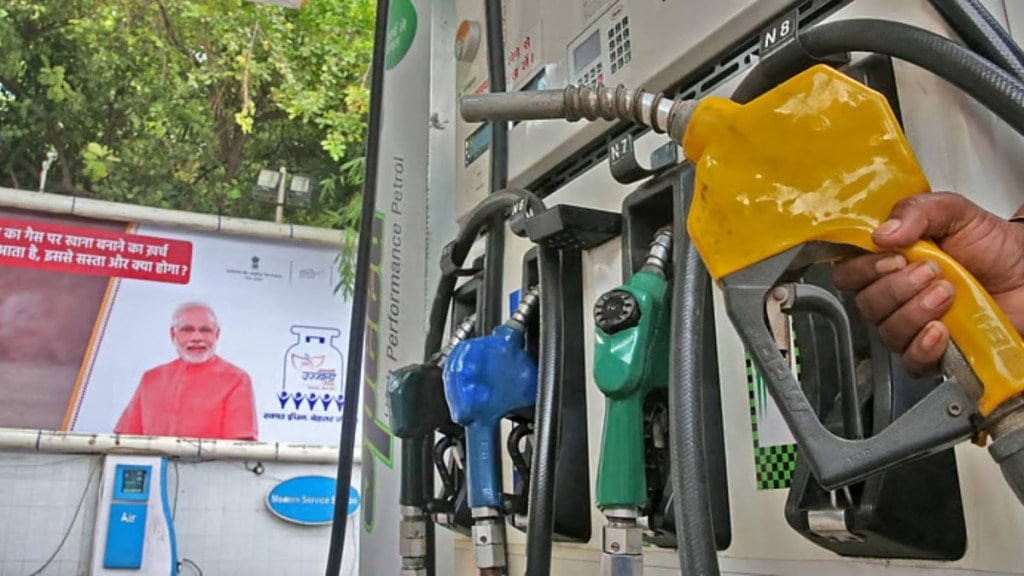The Centre has said that the 20% blending of ethanol in petrol will increase the acceleration of the vehicle, improve the quality of ride and also lower the carbon emissions by approximately 30% as compared to E10 fuel. The Ministry of Petroleum and Natural Gas has shared a long post on X stating that money will get saved with this Ethanol blending programme.
“The use of E-20 gives better acceleration, better ride quality and most importantly, lowered carbon emissions by approximately 30% as compared to E10 fuel…Vehicles tuned for E20 deliver better acceleration which is a very important factor in city driving conditions. Additionally, Ethanol’s higher heat of vaporization reduces intake manifold temperatures, increasing air-fuel mixture density and boosting volumetric efficiency,” it said.
⛽️#Biofuels and Natural Gas are India’s bridge fuels. They represent a viable, non-disruptive transition towards meeting our commitments to a greener world and are in line with our Nationally Determined Contribution (NDC) wherein India has signed up to Net Zero by 2070. A study…
— Ministry of Petroleum and Natural Gas #MoPNG (@PetroleumMin) August 12, 2025
The ministry said that the critiques who are suggesting that E20 causes a “drastic” reduction in fuel efficiency are misplaced. “Vehicle mileage is influenced by a variety of factors beyond just fuel type. These include driving habits, maintenance practices such as oil changes and air filter cleanliness, tyre pressure and alignment, and even air conditioning load,” it added.
It said the programme would back India’s ‘Net Zero by 2070’ goal. A study on life cycle emissions of Ethanol done by NITI Aayog has said that GHG emissions in case of use of sugarcane and maize-based Ethanol are less by 65% and 50% respectively, than those of petrol, it added in the detailed post.
Will E-20 be cheaper than petrol? Centre responds
On the concerns that ethanol blended petrol should be cheaper than non blended fuel and that this cost advantage has not been passed on to the customers, the Ministry said people are referring to a NITI Aayog report of 2020-21.
“In 2020-21, when the Report of NITI Aayog was prepared, Ethanol was cheaper than Petrol. Over time, procurement price of Ethanol have increased and now the weighted average price of Ethanol is higher than cost of refined Petrol,” it said.
The Centre said the average procurement cost of Ethanol for Ethanol Supply Year 2024-25, as on July 31, 2025, is Rs 71.32 per litre. This is inclusive of transportation and GST. Now, it said, for producing E20, OMCs blend 20% of this procured Ethanol with Motor Spirit (MS).
Price of C-heavy molasses based Ethanol increased from Rs 46.66 (ESY 2021-22) to Rs 57.97 (ESY 2024-25). Price of Maize-based Ethanol increased from Rs 52.92 to Rs 71.86 over the same period.
The government said that despite the increase in price of ethanol in comparison to petrol, the oil companies have not gone back on the ethanol blending mandate because the programme delivers on energy security, boosts farmers’ incomes and environmental sustainability.
‘Some seek to derail programme’
The Ministry said Ethanol Blending is a national programme and some are seeking to derail it by “fomenting fear and confusion” in the minds of car owners by selectively picking information and creating a false narrative that insurance companies will not cover car damage due to use of E20 fuels.
“This fear mongering is totally baseless and has been clarified by an insurance company whose tweet screenshot was deliberately misinterpreted to create fear and confusion. Usage of E20 fuel has no impact of the validity of insurance of vehicles in India,” it added.
It said that the automobile manufacturers continue to engage with vehicle owners to provide them any support that may be warranted to ensure optimum performance of vehicles.
Will country go beyond E-20?
On the discussions of going beyond E-20, the ministry said the same requires “careful calibration”. It said this will need extensive consultation, which are underway.
Citing example of Brazil, it said the consultations are underway with the same vehicle manufacturers who are already in Brazil as well as other manufacturers, entities involved in supply of feed stocks, R&D agencies, oil companies and Ethanol producers.
In the meanwhile, the current roadmap commits Government to E-20 upto Oct 31, 2026. Decisions for beyond Oct 31, 2026 will involve submission of the Report of the Inter Ministerial Committee, evaluation of its recommendations, stake holder consultations and a considered decision of Government in this regard, the Centre said.

